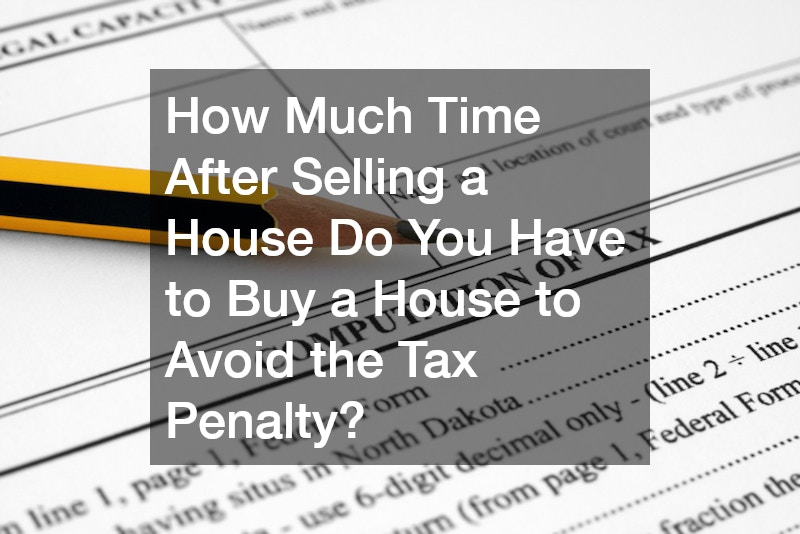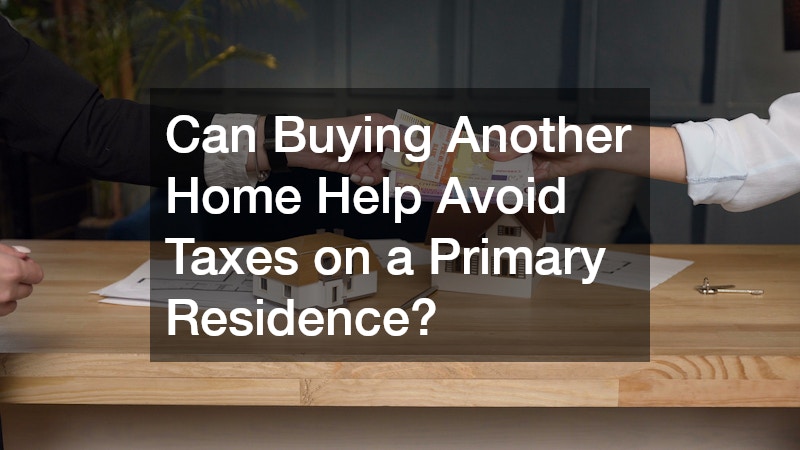Disclaimer: The financial content on this site is for informational purposes only and should not be considered financial or investment advice. Please consult a licensed financial advisor before making any financial decisions.
Selling a house can come with significant financial gains, but also some tax consequences. Many homeowners and investors wonder: How much time after selling a house do you have to buy another to avoid a tax penalty? The answer depends on several factors, including whether the home was your primary residence, a second home, or an investment property.
This article explains key timelines, tax rules, and strategies to help you legally avoid or reduce capital gains taxes after a home sale.
What Are Capital Gains Taxes on Home Sales?
When you sell a home for more than what you originally paid (after accounting for improvements and closing costs), you may owe capital gains tax on the profit. This applies to both homeowners and investors, but the rules differ depending on how the property was used.
Key points to remember:
- Short-term capital gains apply if the home was owned for less than one year and are taxed at your ordinary income rate.
- Long-term capital gains apply if you owned the home for over a year and are taxed at 0%, 15%, or 20%, depending on your income.
- Exclusions exist if the home was your primary residence, allowing you to exclude up to $250,000 (single) or $500,000 (married) of capital gains.
How Long Do You Have to Reinvest to Avoid the Tax Penalty?
You may have heard that you can avoid paying taxes on your profits if you buy another house within a certain period. However, that rule—known as the “rollover replacement rule”—was eliminated in 1997. Today, there is no rule that allows you to defer capital gains taxes by simply buying another home, unless you meet certain conditions.
Exceptions to the rule include:
- The primary residence exclusion (Section 121): You must have lived in the home for at least two out of the last five years before the sale.
- 1031 exchange (for investment properties only): You can defer taxes if you reinvest the proceeds in a “like-kind” property within a specific timeframe.
So, if your property was your primary home and you meet the requirements, you don’t have to buy another home to avoid the tax. But if it’s an investment property, then a 1031 exchange is your best bet.
Understanding the 1031 Exchange: A Tool for Investors
The 1031 exchange is a popular tool for real estate investors who want to avoid immediate capital gains taxes. It allows you to reinvest the proceeds from the sale of an investment property into another qualifying property.
Here’s how it works:
- 45-day rule: You must identify a new property to purchase within 45 days of selling your current property.
- 180-day rule: The new property must be purchased within 180 days of the sale.
Both deadlines run concurrently from the date of sale, and missing them means the entire gain becomes taxable.
The 1031 exchange does not apply to primary residences or second homes, but it’s a powerful tax-deferral tool for long-term investors.
Can Buying Another Home Help Avoid Taxes on a Primary Residence?
If you’re selling your primary residence, the good news is that you don’t need to buy another home to qualify for the tax exclusion. Instead, you just need to meet the IRS’s ownership and use test:
- Owned the home for at least 2 years
- Lived in the home as your primary residence for at least 2 of the last 5 years
If you qualify:
- Up to $250,000 (single) or $500,000 (married) of capital gains are excluded from taxes.
- You can claim this exclusion once every two years.
If your gains exceed the exclusion limits or if you don’t meet the criteria, you may owe capital gains tax, even if you purchase another house soon after.
What Are the Tax Consequences of Selling a Second Home?
Many homeowners also own vacation properties or second homes. Unfortunately, second homes do not qualify for the primary residence exclusion. This means you’ll likely owe capital gains taxes on any profit from selling that property.
Additionally:
- Depreciation recapture may apply if the home was ever rented out.
- The capital gains tax rate depends on how long you owned the property and your tax bracket.
- You may explore converting a second home into a primary residence for future exclusion, but that strategy requires long-term planning.
For those wondering, “What are the tax consequences of selling a second home?”—the answer is typically a straightforward capital gains tax unless tax planning steps were taken in advance.
Final Thoughts: Planning Is Key to Avoiding Tax Penalties
In summary, you don’t automatically avoid capital gains taxes by buying another home within a certain period. For primary residences, the IRS exclusion is the main shield against taxes. For investment properties, the 1031 exchange offers a strict but effective way to defer taxes—if you act fast.
Key Takeaways:
- There’s no current law allowing automatic tax deferral by buying another home.
- Primary residence exclusion is based on ownership and use, not reinvestment.
- Investors should consider a 1031 exchange and adhere to the strict 45/180-day rules.
- Selling a second home usually results in capital gains taxes unless offset by losses or other strategies.
Consult a tax professional or real estate advisor before making decisions involving home sales and reinvestments.


